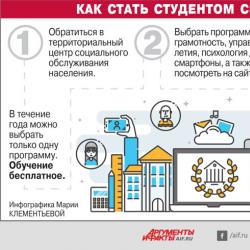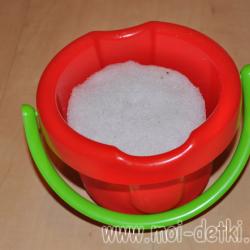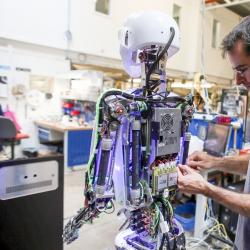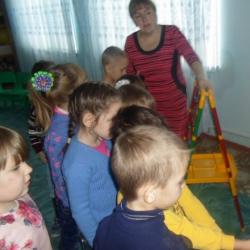What will a pensioner be taught? “Silver University”: how Moscow pensioners learn to use smartphones Silver University
Pensioners will not enjoy a peaceful old age. A number of national and regional projects aim to encourage social activity among older people.
Gray beard - run to your desk
Recently, the government has become involved in the education of the elderly. Studying is free, and programs are designed taking into account the capabilities of gray-haired students. You can find out what kind of education and where exactly to get it from your territorial social security office. The regional branch of the Union of Pensioners of Russia will also help you get your bearings ( websitewww.rospensioner.ru , telephone numbers of the central office in Moscow: 651-38-69, 651-38-68).
The country is aging, and the state is opening a new page in its attitude towards pensioners, explains Valery Ryazansky, head of the Union of Pensioners of Russia, State Duma deputy. - In retirement, a person cannot be left alone with his thoughts and pills.
Forms, faculties and methods of moving away from sad thoughts are different in each region. For example, in Chelyabinsk, 60-70-year-old students of the People's University of the Knowledge Society learn computer literacy in the regional library. As, by the way, in Moscow. In Kolomna, at the People's University, an elderly person can study throughout his life. The oldest listener is 87 years old, ladies predominate.
At the nuclear shipbuilding center in Severodvinsk, pensioners are trained at the Senior University (don’t smile, this is the official name) “Golden Age”. Northern seniors are taught the art of crocheting, tapestry weaving, choral singing, and financial literacy. If desired, former submarine builders can gain carving skills. What is carving? Imagine: the art of artistic cutting of vegetables and fruits.
Anti-wrinkle laptop
The project “Computer Academy for Pensioners” was created by military pensioner Sergei Avdevnin. He is a doctor by profession, born in the Volgograd region, served in Transbaikalia, in Mongolia, a participant in hostilities as part of the UN contingent and a Chernobyl liquidator. Now lives in Donetsk. The veteran has mastered website building and teaches seniors for free.
On the computer education website (www.pc-pensioneru.ru) it clearly explains what a browser and a text editor are, how to register a mailbox, and conduct personal correspondence. And in general, he teaches how to earn extra money on the Internet instead of working as a banal night watchman.
By the way, in the Kursk region they decided to train 3,000 pensioners in universities for the elderly, providing a choice of six faculties: computer science, gardening, health, culture and art, law, spiritual revival.
Do you think the elderly are all lining up to garden? Not at all. Vegetable gardening took only third place in the ranking of preferences of old people. The second is spiritual rebirth. And the majority rushed to the Faculty of Computer Science.
The attraction of older people to high technology is a useful trend. Perhaps the first address that a person retiring should remember is the portal of state and municipal services: www.gosuslugi.ru/ru. You need to start with the “Retirement” section and then go through all the resources you are interested in: obtaining certificates, medications, benefits.
For a well-deserved rest
In addition to the list of benefits provided by the state, there are many age-related discount programs.
Each city and region has its own offers. This means that you will have to find out on your own which days and in which theaters and cinemas tickets are sold at a discount. Museums also offer discounts for senior citizens.
For example, a regular entrance ticket to the Tretyakov Gallery costs 300 rubles. For a pensioner, visiting the complex on Lavrushinsky Lane costs only 70 rubles. Entrance to the exhibition halls of the Engineering Building is slightly more expensive - 80 rubles.
Ticket to the Main Museum Complex of the Hermitage - 400 rubles. And pensioners are allowed in for free.
Many travel agencies, shipping companies and air carriers offer discounts to older travelers. Often this is a way to attract customers to the so-called. “low season,” and, according to the press secretary of the Russian Union of Tourism Industry Irina Tyurina, there is almost no mass retirement tourism in Russia in the sense in which it is understood in the United States and the European Union. As a pleasant exception, the PCT cites the “Winter in Tunisia” program (nuveltrans.com/tunisia-tours-menu-main.html).
They are offered by the Moscow company Nouvel Trans, a large Russian operator in Tunisia, explains Irina Tyurina.
The company agreed with three four-star hotels in Sousse and Hammamet. In winter there is 15-20 degrees in the shade, fresh vegetables and fruits, a good level of local medicine. Tours are designed for a vacation of up to 85 days, the cost of the most expensive tour for double occupancy in a room is $2,300. Flight and two meals a day included. If you choose a short (up to a month) vacation, you do not need a visa.
As a bonus, the company gives SIM cards to a local telephone company, according to which the cost of a 30-minute call with Russia costs 300 rubles, and all incoming calls are free.
Such tours were first offered three years ago; since then, more than a thousand Russians aged 60 to 85 have spent the winter in Africa. The company says that the majority of clients are intelligent retirees - former teachers, college professors, professors. Previously, pensioners were transported by charters and Turkish Airlines, now they fly with Air France and Alitalia airliners: a flight with a connection in Paris or Rome takes five hours.
For a pensioner, almost 70 thousand rubles is decent money, but children and grandchildren help out. By the way, having mastered a computer and learned English, you can independently, without the help of travel agencies, find discounts and book hotels around the world. For less money it is quite possible to comfortably spend the winter in Thailand or Venezuela.
And anyway, who said that a Russian pensioner is necessarily a poor and sick person? The author of these lines met a married couple in Portugal: Muscovites, they live in a dacha, they rent out a city apartment and use their income to fly to different parts of the world 3-4 times a year. Traveled halfway around the world. In the intervals between travels they live like everyone else - honestly and modestly, and solely on their pension.
How are they
Every country has hotels and seasons when seniors are offered significant discounts. February in Bermuda is for those over 50. In Switzerland, the season for pensioners (women over 62 and men over 65) is from October to March.
Some do not expect mercy from above and fight wrinkles with all available means.
Galina Chuvina, a city swimming pool attendant from Sasov (Ryazan region), became interested in the sport of knife throwing after her retirement. And she set two world records.
The oldest DJ on the planet was our man: Boris Karaulov, member of the DJ s Krugozory duo. He started his career as a DJ when he was 60. He got up every day at 4.00 and set aside two hours for physical education. The most famous composition: “Old age will not end.” He died last year from a stroke at the age of 72.
Pensioner in numbers
There are 30.7 million citizens over working age in the country (22.1 million women and 8.6 million men). Of these, according to the Ministry of Economic Development, 8 million are working, 12 million are ready to go to work.
The average salary of a working male pensioner last year was 19.6 thousand rubles, for women - 13.7 thousand. Pension - 6.5 and 6 thousand, respectively.
A pensioner suffers from 5-7 chronic diseases at the same time. Out of 100 old people, 8 never leave their houses and apartments, and 5 are bedridden.
A new educational project for citizens of older generations called “Silver University” starts in Moscow on November 1. Its participants will be Muscovites of retirement age: men over 60 years old, women over 55 years old. At Silver University, they will be able not only to have an interesting time, but also to acquire knowledge and skills that will improve their quality of life.
For example, master a computer and mobile applications, learn foreign languages, and understand the basics of financial and legal literacy. At Silver University, it will be possible to obtain a profession as a nanny, doll maker, or urban landscaper. Acceptance of applications for free training will begin on October 16 at territorial centers of social services for the population (TCSS).
The training program was developed jointly with the Moscow City Pedagogical University. When creating it, experts were based on surveys conducted at the TCSO among older people. Such monitoring helped to determine the sphere of interests of the capital’s pensioners.
Classes will be held both directly at social service centers at the place of residence, and at the sites of the Moscow City Pedagogical University. They are located in eight metropolitan districts - Western, South-Western, Central, Eastern, North-Eastern, Northern, North-Western and Zelenograd. Each group will have 15-20 people. It is expected that by the end of the year, 2,600 pensioners will study at the university.
Let us remind you that 3 million elderly people live in Moscow - this is a quarter of the city’s adult population. The goal of the authorities’ efforts is to extend their creative and professional longevity.
Probably, this pedagogical university has never seen off any graduates with such warmth in its entire history. Tea with pies, karaoke, funny competitions and gifts. Long before the start of the solemn event, the hall was already full. “We know that our “silver” students are very responsible, they always come an hour and a half before the start of the event, so we came up with leisure activities for them so that they would not get bored while waiting,” explained the graduation organizers.
Increase in pension
208 graduates of Silver University, who studied the professions of a nanny, a green farm worker and a manufacturer of gaming dolls, received certificates of working specialties. These are the longest training programs, lasting six months. Students of general education courses, for example, in the study of English, the history and culture of Moscow, and computer literacy, completed their studies earlier. A total of 3020 Muscovites. Some came to study simply to avoid sitting at home and to acquire an exciting hobby, while others came to expand their knowledge. But there were also those who purposefully acquired a profession in order to have additional income in retirement.
One of the most popular programs at the university is computer literacy. Photo: Moscow Agency / Sergey Kiselev
“Life becomes more active after retirement. It is important to keep up with the times. And it's great that you don't want to sit at home idly. We will provide you with assistance so that you can find yourself in the labor market,” he promised the graduates Deputy Head of the Moscow Department of Labor and Social Protection Pavel Keller.
You could look for a future job right there, at a job fair organized at Moscow State Pedagogical University for graduates. Newly hired nannies were most interested in the work. The demand for them is also high. There are now more than 200 official vacancies for nannies and caregivers in Moscow alone. And the salaries they promise look more than attractive - from 35-40 to 60 thousand rubles. “We have vacancies for Silver University graduates in our database, and they are constantly updated; employment is carried out through official contracts,” explains Leading Inspector of the Moscow Employment Center Olga Sanakina.
“Before I went to school, I was babysitting,” says Irina, librarian by profession. - After the course, I returned to work as a nanny and I feel calmer and more confident. Teachers structure our diverse life experiences so that they can be used more effectively.”
Activities for the soul
The need for green farming workers in the capital is also great. Salaries from 12-22 to 25 thousand rubles. True, most graduates of this course do not intend to work in a new specialty. “People studied mainly for themselves, among us there are many summer residents,” the pensioner shares with me and shows him a certificate of assignment to the profession Kirill Fortov, a psychologist by training. - I learned about the courses from the Internet. I called the local social protection center and they told me that the groups had already been recruited. Then I called the rector of the university, and he hired me. Now I have an idea about green farming.”
“I have always been interested in how to care for plants,” continues classmate Kirill Elena Nikolaeva, former programmer. - Now I want to reorganize the flower beds on my site. Everyone attended the classes very enthusiastically. We planted pepper seedlings on January 25, and now they are growing in my greenhouse.” So theory is not complete without practice. The students even took a master class with the famous TV presenter of programs for gardeners Oktyabrina Ganichkina.
The most cheerful and friendly student group turned out to be puppeteers. They show me their work. Real works of art! Dolls - made of hot plastic, frame, fabric, in national costumes or evening dresses, even in the form of amulets. The work is painstaking. It takes 1.5-2 months for one doll. Graduates of this program can work on behalf of children's studios and clubs, as well as museums. But that’s not what they came here for. Making dolls is both an activity for the soul and a cure for mental wounds. Tatyana Shenaeva At the age of 41, she lost her daughter and grandson. At 45, she gave birth to a daughter again. The years flew by unnoticed, in worries, leaving no time for oneself. First she raised a child, then she experienced grief, and again the troubles of late motherhood. And the daughter, who has not yet fully grown out of dolls herself, supports her mother’s hobby. “Only in retirement did we learn that a favorite activity can bring such pleasure,” Tatiana’s classmates told me with sparkling eyes. - We have formed a club of interests here. We found new friends and now we meet regularly. Life has blossomed with new colors.”

Young people over... 60
According to teachers, working with an audience of 60 plus is a pleasure. These students do not skip classes, but with their energy, exactingness and activity in mastering science, they can sometimes give young students a head start. They say that the office where they made dolls was located on the 5th floor, in an old building without an elevator. It's 108 steps. At the end of the course, when the pensioners came to take the exam, they simply flew up.
“Judging by how deftly you jumped on stage today to take photos, by the energy that reigns in the hall, by your young, optimistic eyes, you are not much different from the students you once were. “You are committed to an active future life,” confirmed Director of the Moscow Employment Center Georgy Timofeev.
“And in modern life you need to be able to do a lot, be prepared for everything, because there is so much still to come,” he admonished the graduates Rector of Moscow State Pedagogical University Igor Remorenko. - You have entered a program that, in addition to communication, gives you the opportunity to declare that you have a serious professional skill. Classes continue at Silver University. There are other general development programs. And we will be glad to see you in the fall."
You can sign up to study at Silver University now. You can only choose one curriculum per year (see infographic). But you can always learn, not only in the silver age, but also in the golden age.
A new educational project for older people called “Silver University” starts in Moscow on November 1. Its participants will be Muscovites of retirement age: men over 60 years old, women over 55 years old. At Silver University, they will be able not only to have an interesting time, but also to acquire knowledge and skills that will improve their quality of life.
For example, master a computer and mobile applications, learn foreign languages, and understand the basics of financial and legal literacy. At Silver University, it will be possible to obtain a profession as a nanny, doll maker, or urban landscaper. Acceptance of applications for free training will begin on October 16 at territorial centers of social services for the population (TCSS).
“More than two and a half million elderly people live in Moscow—that’s about a quarter of the city’s adult population. Our goal is to extend their creative and professional longevity by organizing cultural and educational leisure,” said Vladimir Petrosyan, Minister of the Moscow Government, Head of the Department of Labor and Social Protection of the City. — “Silver University” will give pensioners the opportunity to study what they were unable to master before due to lack of time. Indeed, in their young and mature years, they mainly devoted themselves to work and caring for their family.”
As Vladimir Petrosyan clarified, the training program was developed jointly with the Moscow City Pedagogical University. When creating it, experts were based on surveys conducted at the TCSO among older people. Such monitoring helped to determine the sphere of interests of the capital’s pensioners.
Classes will be held both directly at social service centers at the place of residence, and at the sites of the Moscow City Pedagogical University. They are located in eight metropolitan districts - Western, South-Western, Central, Eastern, North-Eastern, Northern, North-Western and Zelenograd. Each group will have 15-20 people. It is expected that by the end of the year, 2,600 pensioners will study at the university.
Elderly students will be able to enroll in one of five faculties: humanities, mass communications and computer science, culture and creativity, health and safety, or psychological support of the individual. At the Faculty of Humanities, older people will learn the basics of spoken English and German, the history and culture of Moscow, and will also become familiar with the peculiarities of volunteer work. At the same faculty, training will be given to the profession of green farm worker.
During classes at the Faculty of Mass Communications and Informatics, pensioners will be explained how the modern information space works, taught how to use gadgets, and told about the basics of journalism. The Faculty of Culture and Creativity will host practical classes in dance and handicrafts. Here you can also learn the profession of a doll maker.
Health and Safety students will take courses in Fundamentals of Financial and Legal Literacy, Healthy Swimming, and Food Not Medicine. And at the Faculty of Psychology, older people will learn to prevent and resolve conflicts, as well as overcome psychological barriers in communication. Here, pensioners will be able to get a job as a nanny.
The duration of general education programs will be from 24 to 36 hours. Up to 160 hours are allocated for training in working specialties. Lessons will be held at least twice a week for two academic hours. In addition to theoretical and practical classes, students will be able to attend trainings and master classes from specialists in specific fields. In addition, the university will host festivals, creative evenings and recreational evenings.
At the end of the training, graduates will be given certificates of completion of the educational course. These are not state diplomas, but these documents confirm the acquired knowledge and skills.
MSPU is an educational space for the creative and professional development of citizens of retirement age. Three programs are held at the site of the State Educational Institution "Pedagogical College No. 18 Mitino":
- “History and culture of Moscow”;
- “Information and educational environment in the life of society”;
- “Conversational English”
"Silver University"
- part of a city project"Active longevity" . Its main task is to create conditions for the creative and professional development of older people and improve their quality of life.
The idea of Long Life Education is one of the most discussed in the world today. In terms of coverage of pensioners with education, we, alas, are far from being at the forefront: in terms of population, China is 15 times ahead of us, and in terms of the number of pensioners receiving education, it is forty times ahead. In Moscow, this idea was developed by a teacher at the Moscow City Pedagogical University, candidate of geographical sciences Alexander Levintov. It was he who proposed opening the “Silver University” for pensioners.
- How did the idea of creating a university for older people come about?
When I turned 70, I started thinking about what was next. And the most important thing that seemed to me in my first thoughts was that humanity is losing enormous professional, social and moral potential by letting people go from this life without receiving their heritage, which is not formalized in any way. People leave, generation after generation. And this applies not only to today, but to the entire history of mankind. We know from antiquity, maybe only a few hundred people.
- Let's leave antiquity. We could at least know our family's memoirs. But they are not...
But they are not there. People leave silently. When a cow is not finished milking, she moos in pain. And people suffer because they never spoke out. And they don’t have the space for this.
- This space needs to be created. State university?
No. This university will exist with money from the Moscow Department of Social Security, and therefore, with our pension contributions. We, Muscovites and our city paid for this opportunity, and not the state at all. The state minds its own business. That's what we do for ourselves, that's what will happen.
- What is your status at this university?
I would like to remain an ordinary teacher. I will be interested in participating in my own project. I will teach the history of Moscow.
- Students will not pay for their education?
No, the palliative is this: you finish one course, take the next one. Why is this palliative bad? The life of a pensioner is very short. Based on this, I suggested that a person can take at least five courses at once, this is a university. In the future, I think we will overcome this.
- That is, the doors of the university remain open for a retired graduate?
Yes. And starting from January, from the second semester, it would be nice for a pensioner to be able to take not just one course, but several. Plus as many free master classes as he wants. As much as he needs to start searching for the meaning of his life. People have long lost the meaning of life, they were put in a situation of survival, and the university allows them to create new meanings for their existence.
-The question “is it too late?” appropriate?
It's never too late. Moreover, I believe that old people are the true elite of society. After all, the elite are those who set the meaning of life. Old people are more concerned about this issue than anyone else.
Is some more practical application of the knowledge acquired at the university possible, other than searching for the meaning of existence? For example, getting a job?
Yes. We have five working specialties you can get, for example, a nanny, a doll maker or a green designer. And the certificate will allow you to find a job. But such specialties will need to study not for 2-3 months, as in most programs, where the course provides from 24 to 36 hours, but longer, you will need to complete 160 hours of training.

We have five faculties. Communications, arts and crafts, wellness, for example. They teach everything, even the art of dancing.
Registration has already ended for the first semester. We had 2,600 places, 4,000 applications were immediately submitted. In the first days we received a hundred applications per hour. Now you need to sign up at the end of December, when registration for the second semester opens. You can sign up either on the social security website or on the MGPU website. We are doubling the number of student places.
- Apparently, people need such a university...







